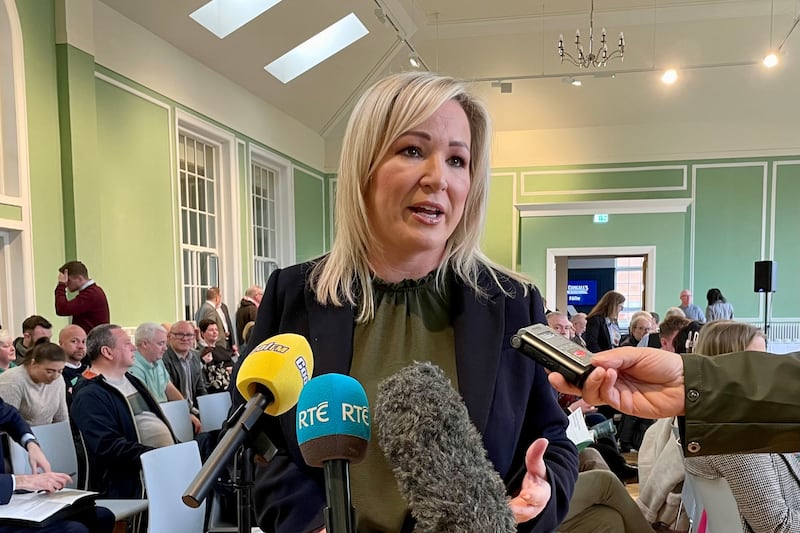NORTHERN Ireland’s political process must have "young people at its heart if it is to provide a safe, stable and prosperous future for all", a youth event has heard.
Young people have called for a say in the future of the north as they gathered at Parliament Buildings in Belfast at an event to mark the 25th anniversary of the Good Friday Agreement.
Organised by the Northern Ireland Youth Forum (NIYF) and funded by The Executive Office, it brought together young people, MLAs, academics and senior civil servants to discuss the achievements of the agreement, its relevance and challenges for the future.
It was one of a series of events organised by NIYF to commemorate the anniversary, which will culminate with a meeting of 100 young people, decision-makers and academics at Ulster University in Belfast on March 30.

Cohen Taylor, NIYF policy officer and a student at Lagan College, kicked off proceedings in the Long Gallery with a demand for politicians to "listen to the voice of youth".
"For the average young person in this room, roughly half of their life has been spent without a functioning government," he said.
"As we look forward with optimism to the future, the agreement to inevitably come must be shaped with youth voice at its heart, must provide stable democratic governance for decades to come.
“The NIYF will continue to work each and every day on the ground in local communities to promote peace, reconciliation and open doors for young people."
UUP MLA Mike Nesbitt, who sponsored the event, told the young people gathered: “You need today’s politicians to start building your future so that when you are ready to take over, things are in a much better place".
Mr Nesbitt and other MLAs, including Sinn Féin's Danny Baker, Connie Egan of Alliance and the SDLP's Colin McGrath signed a pledge supporting the "four key asks" of the NIYF’s Youth Manifesto for Change.
This demands the creation of a Minister for Youth, an all party working group for young people, a Bill of Rights that protects young people and knowledge of rights to be on the school curriculum.
Dr John Bell from Ulster University posed a series of questions to his young audience – what relevance did the agreement have for today’s young people, is it still important and is it working for their generation.
In a series of round-table discussions, the young people discussed the issues that most affected their lives and completed a survey on the current state of the political process.
One hundred percent of those present said it was important that young people had conversations about the Good Friday Agreement and it was unfair that one political party could prevent the workings of government. They were also unanimous in believing that having no functioning government was affecting their lives.
A total of 94 per cent said having votes at 16 would help change the political landscape, while the same percentage believed sectarianism was still an issue in Northern Ireland.
However, 83 per cent said they felt safe disclosing their national identity, while 72 per cent believed mandatory coalition was holding Northern Ireland back.
The attendees identified the biggest issues affecting young people including: accessible education including lack of access to integrated education, inclusive employment and career paths, relationships with government and police, mental health and wellbeing, poverty and social mobility, Irish Language inclusion, lack of access to housing for young people and the safety of LGBTQ+ community.
NIYF director Chris Quinn said 25 years on from the signing of the agreement, "we have a lot to be proud of and are very grateful to those who have played a role".
"It is now time to listen to the voices of young people and look forward to a restoration of government and the delivery of young people's asks within their manifesto for change," he added.








